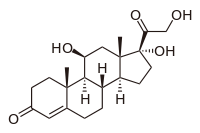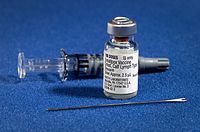
miR‐155‐5p regulates mesenchymal stem cell osteogenesis and proliferation by targeting GSK3B in steroid‐associated osteonecrosis
Sign Up to like & getrecommendations! Published in 2020 at "Cell Biology International"
DOI: 10.1002/cbin.11470
Abstract: microRNAs (miRNAs) have recently been recognized as playing an important role in bone‐associated diseases. This study investigated whether the reduced miR‐155‐5p in steroid‐associated osteonecrosis of the femoral head (ONFH) attenuated osteogenic differentiation and cell proliferation… read more here.
Keywords: mir 155; mir; gsk3b; cell ... See more keywords

Inhibition of Gsk3b Reduces Nfkb1 Signaling and Rescues Synaptic Activity to Improve the Rett Syndrome Phenotype in Mecp2-Knockout Mice.
Sign Up to like & getrecommendations! Published in 2018 at "Cell reports"
DOI: 10.1016/j.celrep.2018.04.010
Abstract: Rett syndrome (RTT) is the second leading cause of mental impairment in girls and is currently untreatable. RTT is caused, in more than 95% of cases, by loss-of-function mutations in the methyl CpG-binding protein 2… read more here.
Keywords: mecp2 knockout; rett syndrome; inhibition; gsk3b ... See more keywords

GSK3B Overexpression Alleviates Posttraumatic Osteoarthritis in Mice by Promoting DNMT1-Mediated Hypermethylation of NR4A3 Promoter
Sign Up to like & getrecommendations! Published in 2022 at "Disease Markers"
DOI: 10.1155/2022/4185489
Abstract: Background Glycogen synthase kinase 3β (GSK3B) is reported to be a protective factor for the degradation of chondrocytes by extracellular mechanisms. Nuclear receptor subfamily 4 group A member 3 (NR4A3) is a proinflammatory factor in… read more here.
Keywords: posttraumatic osteoarthritis; nr4a3 promoter; overexpression; gsk3b ... See more keywords

2092-P: Invalidation of GSK3B in Pancreatic Beta Cell as a Therapeutic Target for T2D
Sign Up to like & getrecommendations! Published in 2020 at "Diabetes"
DOI: 10.2337/db20-2092-p
Abstract: Insufficient pancreatic β-cell mass or function is one of the main causes underlying diabetes mellitus. Glycogen synthase kinase 3 (GSK3) is a ubiquitously expressed serine/threonine kinase. GSK3 is encoded by two known genes, GSK3 alpha… read more here.
Keywords: glp; gsk3b; none; cell ... See more keywords